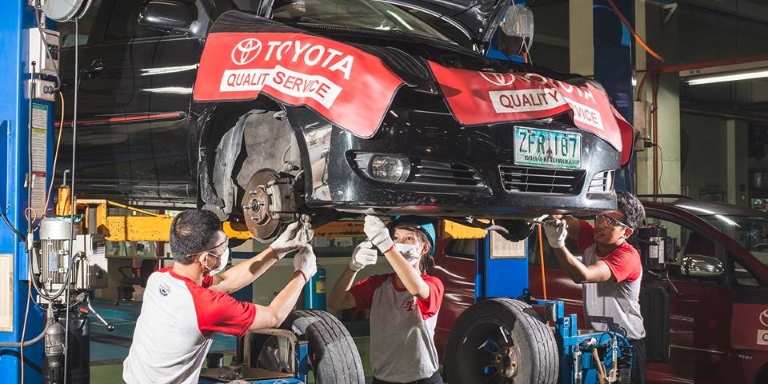Context: TVET and higher education enrollments in the Philippines are relatively high compared with countries at similar development levels, particularly for young women. For disadvantaged youth, the most fundamental constraint to access is that many never complete the 10-year education cycle. For those who do, entry into post-secondary education is limited by factors such as low achievement in basic education and the absence of effective mechanisms for targeted scholarships or student loans. For TVET, a broader constraint is the concentration of TVET providers in niche areas at both ends of the skill spectrum, while mid-level skill workers must rely on limited opportunities for informal and/or on-the-job training.
Implementation of programme/ initiative: Technical Education and Skills Development Authority (TESDA), the lead agency in TVET in the Philippines, is mandated to provide relevant, accessible, high quality and efficient technical education and skills development in support of the development of Filipino mid-level manpower responsive to and in accordance with the Philippine development goals and priorities as embodied in Section 2 of the TESDA Act of 1994. In pursuit of its mandate, TESDA enables the Filipino skilled workforce to be more employable, productive and flexible to the changing requirements of industry and the labour market, both domestically and overseas. With employable TVET qualifications, individuals are empowered, become self-reliant and capable of supporting themselves and their family.
Main challenges: TVET has enjoyed huge financial support through scholarship programmes in the recent past. However, although the passing rate for TVET programmes is high at 88.0 per cent, subsequent employment rates are still at the relatively low level of 60.9 per cent. TVET is expensive and requires partnerships with the industrial sector. When funding becomes the focus of government policy, it will be beneficial for the whole government, and for TVET in particular, to maximize government funding assistance by increasing industry participation in supporting TVET programmes. The increase in the scholarship budget could be used as an instrument for greater assistance to raise the level of participation of private TVET providers.
Results achieved: An impact evaluation study on the effect of the TVET implementation in 2011 showed that a high percentage of employed TVET graduates landed jobs related to the training programme they attended. The Youth Profiling for Starring Careers (YP4SC) programme of TESDA was successful in providing career options for TVET graduates. Some 59 per cent of employed TVET graduates acquired jobs related to the YP4SC courses. Moreover, 40 per cent, or 136,170 employed graduates had an average monthly income between USD 5,000 and 9,999; 28 per cent of the employed graduates were earning more than USD 10,000; and 22 per cent were earning less than USD 5,000.
Moving Forward: The following recommendations are being put forward to further improve the delivery and relevance of TVET services to the labour market. Firstly, it is important to sustain and improve quality assurance mechanisms of TVET training deliveries to assist graduates and workers. It is also necessary to strengthen existing TESDA partnerships with industries to further improve and promote TVET programmes in the Philippines. This will be done by pursuing more purposive and active labour market information campaigns, and redirecting training programme initiatives towards priority sectors with highly in-demand and critical jobs. In the future, stronger partnerships with industry will also be pursued, particularly to support company-based training, through, for example, apprenticeships and on the job training programmes.
Replicability: TVET is expensive and requires partnerships with the industrial sector. It is vital for effective government policy on TVET programmes to maximize funding assistance by increasing industry participation in pursuing TVET. As the major end user of skilled workers, industry is in the best position to train workers in accordance with industry standards and conduct industry-based assessments and certification, with governments providing the needed assistance.
References:
www.tesda.gov.ph
2011 Impact evaluation study of TVET.
Project Details
Date: January 12, 2017
